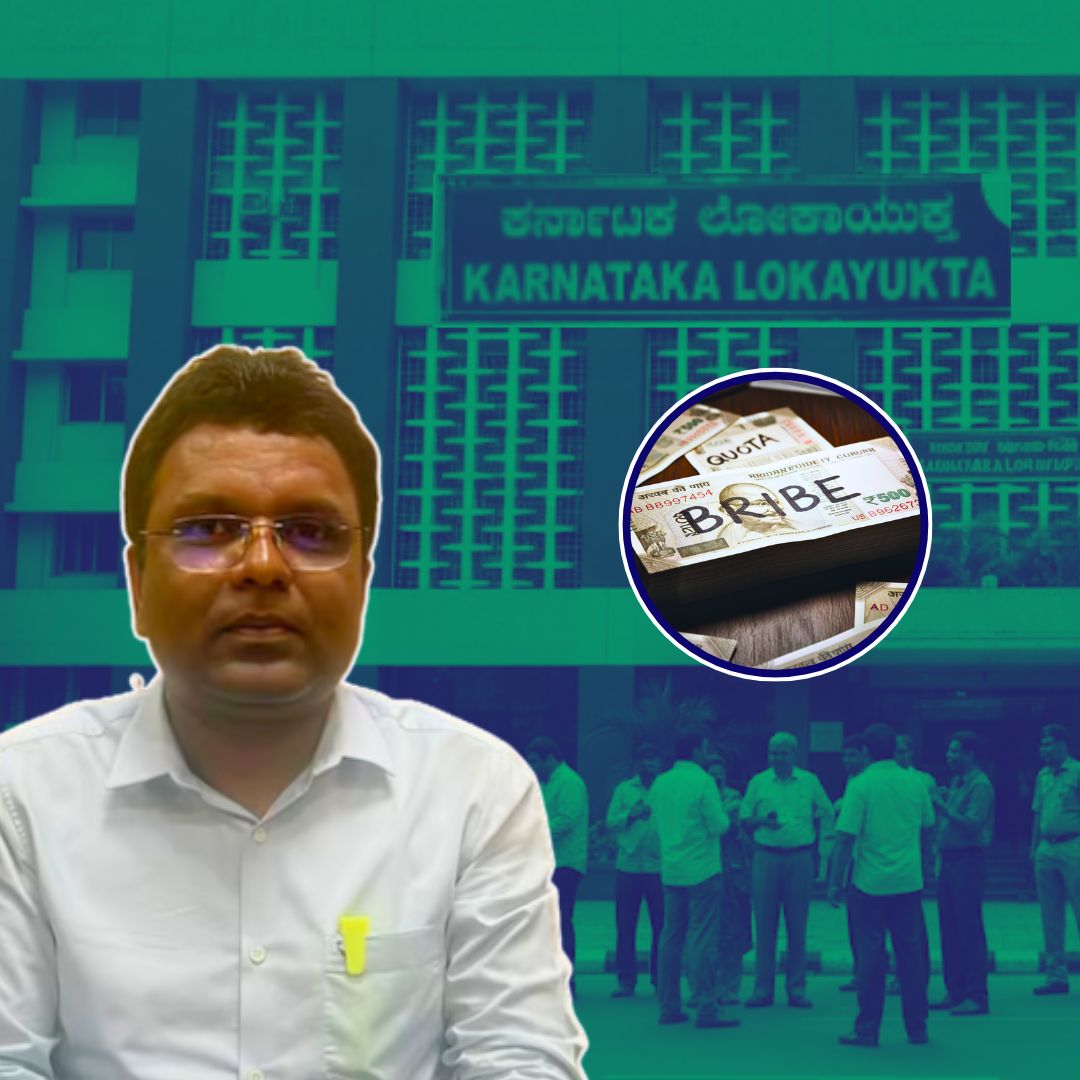In a sharp blow to the Karnataka government’s credibility, Jyothi Prakash, the Officer on Special Duty (OSD) to Energy Minister KJ George, was caught red-handed by Lokayukta sleuths while allegedly accepting a bribe in Bengaluru on October 4, 2025.
The 50-year-old officer, who also serves as an Executive Engineer with the Karnataka Power Transmission Corporation Limited (KPTCL), was reportedly demanding ₹1 lakh for issuing a No Objection Certificate (NOC) to a private developer seeking electricity sanction. This sting operation, according to officials, involved a monitored exchange where ₹50,000 was accepted by Prakash, leading to his immediate arrest.
The scandal has stirred political controversy and public outrage over the endemic problem of corruption in Karnataka’s power sector.
Lokayukta’s Sting Operation and Arrest Details
The arrest was the result of a carefully orchestrated sting operation conducted by the Lokayukta’s anti-corruption squad. The operation began following a complaint filed by a local contractor named Anantharaju K M, who alleged that Jyothi Prakash had demanded a bribe to approve his electricity sanction request. Acting swiftly, the Lokayukta team laid a trap and captured evidence of the bribe acceptance.
During the sting, Prakash was caught accepting ₹50,000 of the demanded amount in cash, with marked bills recovered at the spot. His driver, Naveen M, was also detained for his involvement.
A senior Lokayukta official stressed the importance of such operations, stating, “Our objective is to uphold transparency and eliminate corruption at every level of governance. This arrest reinforces our commitment to ensuring that no official is above the law.”
Conversations and phone records seized during the investigation are expected to provide further leads on the bribery network. Meanwhile, the Karnataka government has not yet issued an official comment on the incident, though insiders suggest that internal reviews are underway to assess the implications.
Corruption in Karnataka’s Power Sector: A Persistent Challenge
This incident sheds light on the deeper, systemic issues plaguing Karnataka’s power and infrastructure sectors. Over the years, similar allegations of corruption have marred the government, with contractors and developers frequently reporting demands for kickbacks to obtain necessary clearances and approvals. The opaque processes of electricity sanctioning often provide fertile ground for graft.
Reports from the Karnataka State Contractors’ Association reveal a trend of increasing frustration among developers due to repeated demands for bribes and delayed approvals. Despite multiple attempts by the government to clean the system-through judicial panels and anti-corruption units-the root cause remains unaddressed: lack of transparency and accountability.
Experts argue that addressing corruption requires structural reforms, such as digitising clearance processes to reduce human discretion, instituting rigorous oversight mechanisms, and encouraging citizen engagement and whistleblower protections. Without these changes, such arrests may be isolated incidents rather than a sign of systemic change.
Political and Public Repercussions
The arrest of an officer so close to a senior minister has sent shockwaves through Karnataka’s political circles. The opposition parties have seized upon the incident to question the state government’s commitment to clean governance and demand a thorough investigation.
Public sentiment has also been one of anger and disappointment, with citizens expressing cynicism over repeated corruption scandals.
Social media platforms have seen a surge in calls for stricter transparency laws and more accountability from public officials. Many have pointed out that corruption at this level ultimately affects ordinary citizens, leading to inflated costs and delayed infrastructure development.
The government’s next steps are being closely watched to see whether this case will catalyse genuine reform or be another momentary spotlight in an ongoing saga of corruption.
The Logical Indian’s Perspective
The Logical Indian views this incident as a reminder of the corrosive effects of corruption on good governance and public trust. It is essential to understand that corruption not only drains public resources but undermines democratic ideals and the rule of law. Every step toward transparency and accountability helps rebuild trust and fosters equitable development.
While law enforcement agencies like the Lokayukta play a vital role in uncovering corruption, sustainable change comes from systemic reforms and active public participation. Encouraging ethical behaviour in public service and protecting whistleblowers are crucial measures.
Moreover, citizens should be empowered to demand transparency and support initiatives that make governance more open and responsive.











